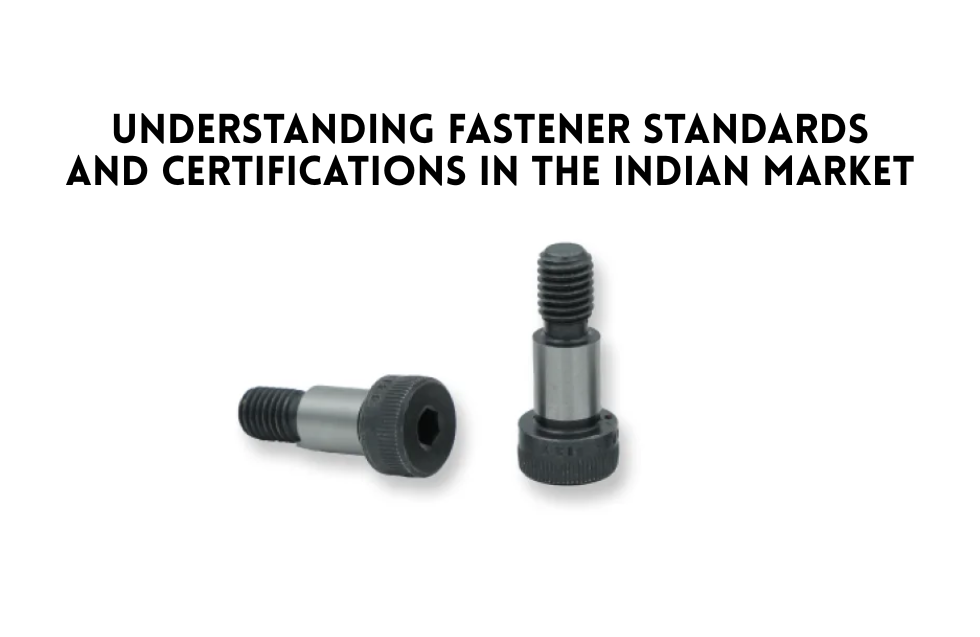The reliability of mechanical assemblies hinges on seemingly minor components that play crucial roles. Fasteners, despite their small size, are fundamental to structural integrity across industries. In India, where manufacturing continues to grow rapidly, adherence to proper fastener standards ensures safety, compatibility, and performance in demanding applications.
Many engineers and procurement specialists struggle with navigating the complex landscape of fastener requirements. Reliable fasteners suppliers across India understand this challenge and work to provide components that meet both national and international certification standards. The consequences of using non-standard fasteners can range from minor inconveniences to catastrophic failures that compromise safety and operational efficiency.
Proper standardisation brings consistency to manufacturing processes and ensures interchangeability of parts across different suppliers. This consistency becomes particularly important in industries where replacement parts must function seamlessly with existing components. Without standardisation, manufacturers would face significant challenges in sourcing compatible fasteners, leading to increased costs and potential safety risks.
Key Indian Fastener Standards
Bureau of Indian Standards (BIS)
The Bureau of Indian Standards serves as the national standards body of India, developing and implementing standards across industries. For fasteners, BIS has established several critical standards that manufacturers must adhere to. These standards specify dimensions, mechanical properties, and testing methods for various fastener types used in Indian industries.
Some important BIS standards include IS 1367 for mechanical properties of fasteners and IS 1364 for hexagon head bolts. These standards ensure that fasteners can withstand specified loads and environmental conditions without failure. They also establish manufacturing tolerances that guarantee interchangeability between fasteners from different sources.
Automotive Industry Standards (AIS)
The automotive sector represents one of the largest consumers of fasteners in India. The Automotive Industry Standards, developed by the Automotive Research Association of India (ARAI), establish specific requirements for fasteners used in vehicles. These standards take into account the unique challenges faced by automotive fasteners, including vibration resistance and corrosion protection.
AIS standards help manufacturers ensure that fasteners can withstand the demanding conditions of automotive applications. This includes resistance to temperature fluctuations, exposure to chemicals, and the ability to maintain clamping force under dynamic loads. Proper certification to these standards is crucial for fasteners used in safety-critical vehicle components.
International Standards Relevant to the Indian Market
ISO Standards
While Indian standards govern local manufacturing, many industries must also comply with International Organization for Standardization (ISO) requirements. ISO 898 defines mechanical properties for steel fasteners, while ISO 3506 covers stainless steel fasteners. These globally recognised standards facilitate international trade and ensure consistency across borders.
Indian manufacturers increasingly seek ISO certification to compete in global markets. This dual compliance with both local and international standards helps establish credibility and opens new export opportunities. For companies involved in international supply chains, adherence to ISO standards has become practically mandatory.
ASTM Standards
American Society for Testing and Materials (ASTM) standards also influence the Indian fastener market, particularly for high-performance applications. ASTM A193 for high-temperature bolting materials and ASTM F593 for stainless steel fasteners provide guidelines that many Indian manufacturers follow to meet export requirements or cater to multinational clients operating in India.
These standards often specify more rigorous testing protocols and tighter performance tolerances than some local standards. For critical applications in petrochemical, aerospace, or nuclear industries, ASTM-certified fasteners may be specified due to their proven reliability under extreme conditions.
Certification Processes for Indian Fastener Manufacturers
Testing Requirements
Obtaining certification requires manufacturers to undergo rigorous testing processes. Mechanical testing evaluates tensile strength, yield strength, and hardness. Chemical analysis ensures proper material composition, while dimensional inspection confirms adherence to standardised measurements and tolerances.
These tests must be conducted at accredited laboratories using calibrated equipment. The testing process verifies that fasteners will perform as expected when installed in their intended applications. Failure to meet any specified parameter results in rejection and requires manufacturing adjustments.
Quality Management Systems
Beyond product testing, manufacturers must implement comprehensive quality management systems. ISO 9001 certification demonstrates commitment to consistent quality processes, while industry-specific certifications like IATF 16949 for automotive suppliers impose additional requirements for reliability and continuous improvement.
These systems involve documenting production processes, implementing statistical process control, and conducting regular internal audits. They also require traceability systems that allow any fastener batch to be linked back to its raw materials and production conditions. This traceability becomes crucial if defects are discovered later.
Benefits of Using Standardised Fasteners
Safety Assurance
Standardised fasteners undergo testing to ensure they can safely handle specified loads without failure. This testing provides critical safety margins that protect against unexpected operating conditions. In safety-critical applications like infrastructure projects or transportation equipment, proper certification literally saves lives.
The testing protocols examine not just static strength but also fatigue resistance, which becomes crucial in applications where fasteners experience cyclic loading. Standards also establish requirements for resistance to environmental factors like temperature extremes or corrosive atmospheres that might otherwise lead to premature failure.
Cost Efficiency
Though certified fasteners may cost more initially, they deliver significant long-term savings by reducing maintenance requirements and preventing costly failures. The standardisation also streamlines procurement processes, allowing for more competitive bidding among qualified suppliers and reducing the need for custom solutions.
Many organisations have discovered that investing in properly certified fasteners dramatically reduces total cost of ownership through longer service life and fewer replacement cycles. This becomes particularly evident in applications where fastener failure would result in expensive downtime or complex repairs.
Conclusion
Navigating fastener standards and certifications remains essential for ensuring safety, reliability, and compatibility in Indian industrial applications. Engineers and procurement specialists should work with suppliers who demonstrate thorough understanding of applicable standards and maintain proper certification documentation. For assistance with selecting properly certified fasteners for specific applications, contact a reputable fastener specialist today who can guide you through the selection process and ensure your mechanical assemblies meet all relevant standards.












